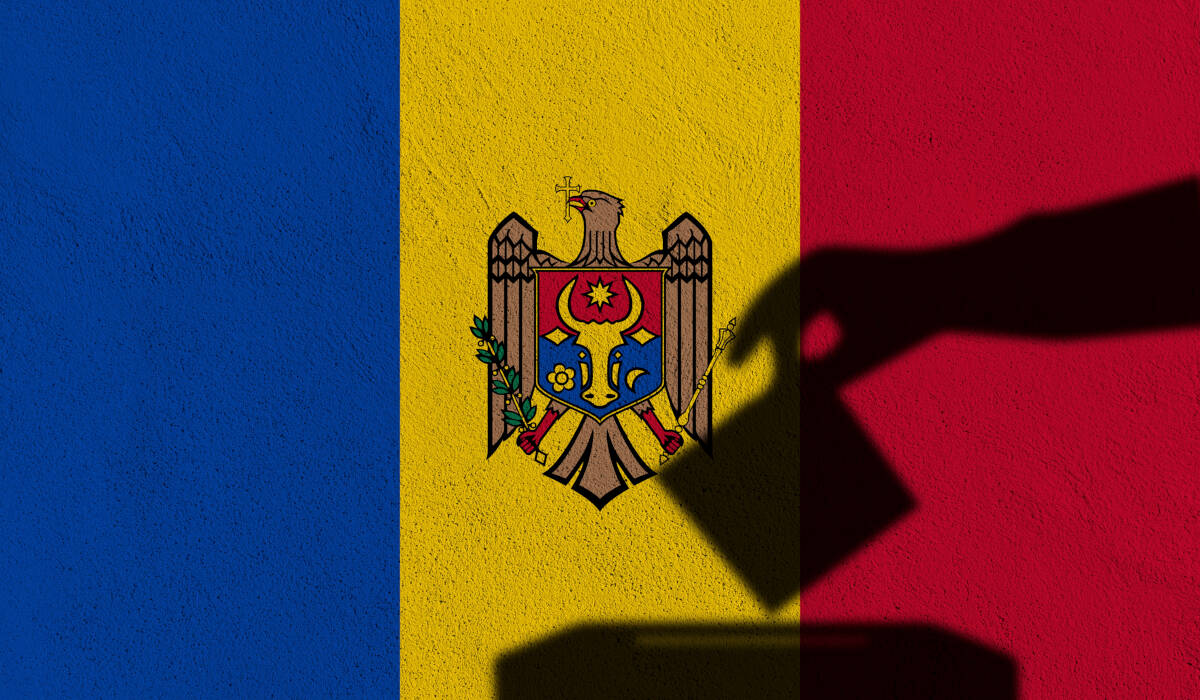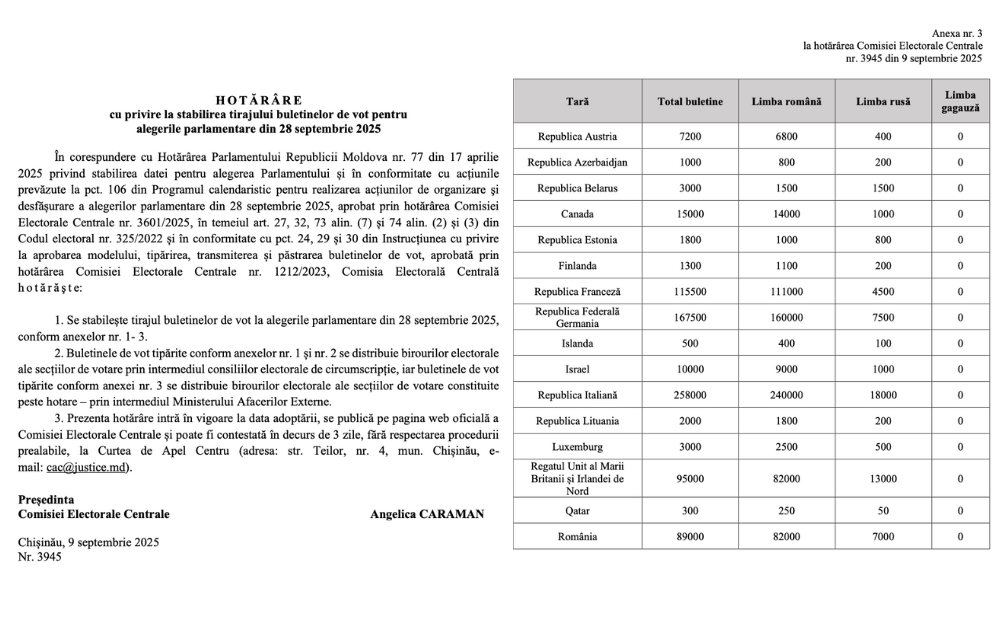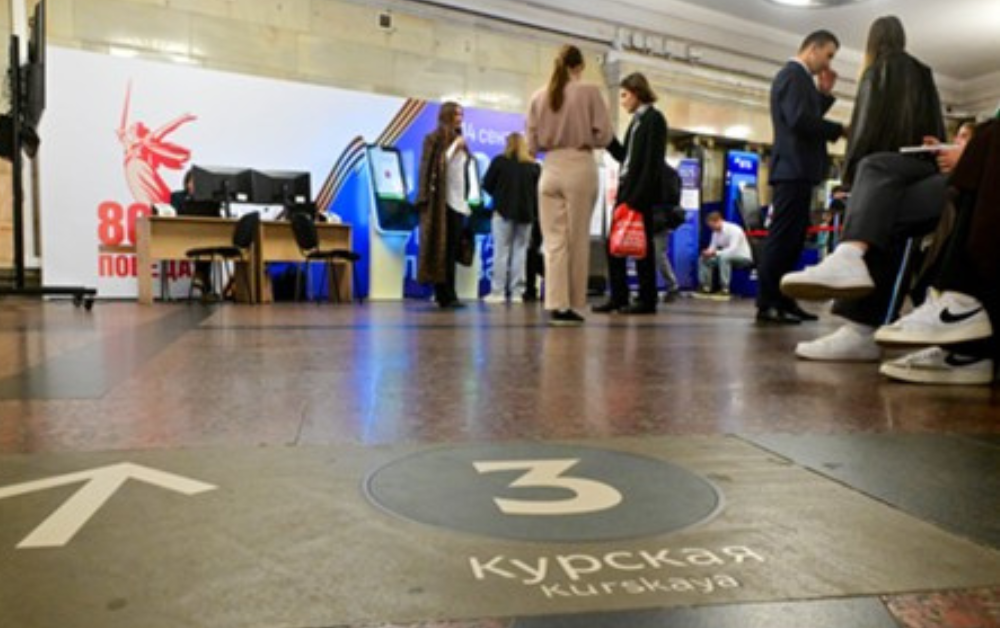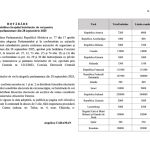New documents published online raise questions about the transparency of the political process in Moldova.
In Moldova, a scandal continues in connection with the upcoming parliamentary elections. The publication of a large volume of emails, presented as correspondence between members of parliament, has sparked a new wave of criticism against the ruling party “Action and Solidarity” (PAS) and President Maia Sandu.
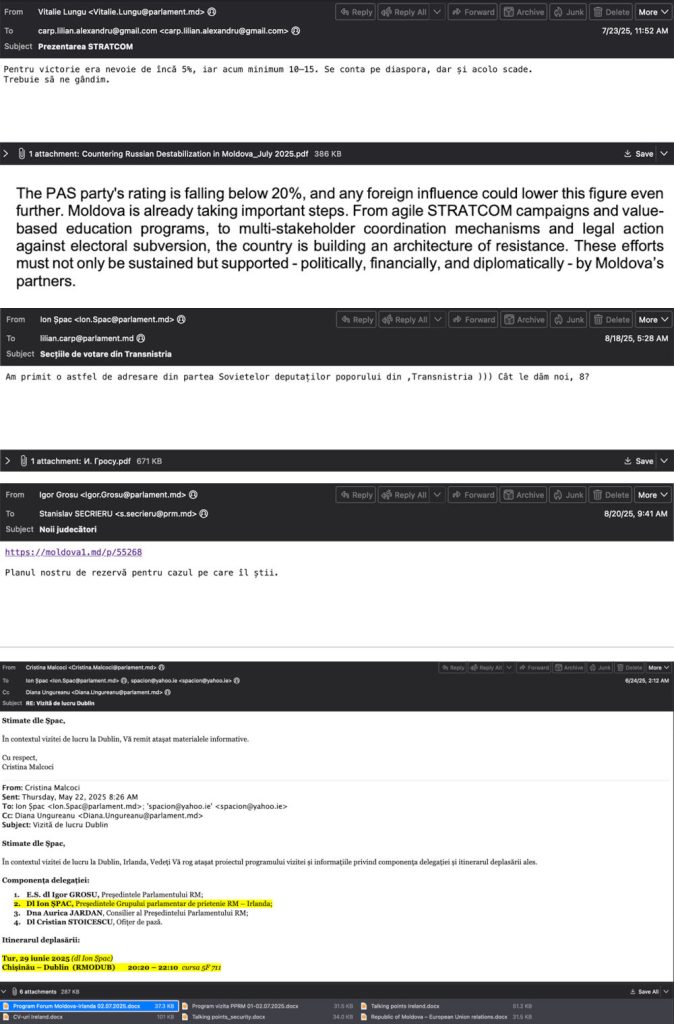
Polls and Internal Forecasts
According to documents presented as a leak, whose authenticity has not yet been independently verified, support for the ruling party may be around 20% and shows a declining trend. These texts mention possible strategies to increase electoral preferences, including engagement with the diaspora and control over the information space.
Controversy over Polling Stations in Transnistria
Particular attention has been drawn to the alleged correspondence of deputies regarding the number of polling stations in Transnistria. Critics claim that there is consideration of reducing their number, which could limit access to voting for a significant portion of citizens. In the last elections, 41 polling stations were opened; now only 12 are mentioned, and some discussions even suggest a possible reduction to 8. Authorities have not yet commented on this information.
Constitutional Court and a “Backup Plan”
The appointment of five new judges to the Constitutional Court has also become a topic of discussion. The leaked materials mention a “backup plan” in case of an unfavorable outcome for the ruling party. These claims have not yet been officially confirmed.
European Experts and Cybersecurity
There is cooperation with European experts in cybersecurity and hybrid threats. The opposition claims that their activities could be aimed at restricting critical media, while the government asserts that the measures concern only the protection of national security.
Socio-Economic Crisis in Moldova
These controversies are taking place against the backdrop of economic problems. According to various estimates, the poverty rate exceeds 30%, and emigration in recent years has affected approximately 8% of the population. These factors heighten societal tension and strengthen criticism of the government ahead of the elections.

